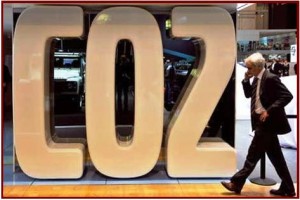 A new EU Climate Law just passed increases the EU’s 2030 emissions reductions target from 40% to at least 55%. With the contribution from new carbon sinks it could go to 57%.
A new EU Climate Law just passed increases the EU’s 2030 emissions reductions target from 40% to at least 55%. With the contribution from new carbon sinks it could go to 57%.
Parliament endorsed the Climate Law, agreed unofficially with member states in April, with 442 votes to 203 and 51 abstentions. When approved by the Council – bet on it – the EU organization representing the member states, the regulation will become a law 20 days later.
This transforms the European Green Deal’s political commitment to EU climate neutrality by 2050 into a binding obligation. It gives European citizens and businesses the legal certainty and predictability they need to plan for this transition. After 2050, the EU will aim for negative emissions. Parliament has played a significant role in pushing for more ambitious EU climate legislation and declared a climate emergency on 28 November 2019. Phasing out gas-powered vehicles and eliminating the use of oil, coal and natural gas are among measures that a new report from the International Energy Association says will be needed to reach net-zero carbon dioxide emissions globally by 2050.
“I would have preferred to go even further, but this is a good deal based on science that will make a big difference. The EU must now reduce emissions more in the next decade than it has in the previous three decades combined, and we have new and more ambitious targets that can inspire more countries to step up,” said parliament rapporteur Jytte Guteland (S&D, Sweden).
The Commission will now make a proposal for a 2040 target at the latest six months after the first global review in 2023 as part of the Paris Agreement*. In line with Parliament’s proposal, the Commission will publish the maximum amount of GHG emissions estimated the EU can emit until 2050 without endangering the EU’s commitments under the Agreement. This so-called ‘GHG budget’ will be one of the criteria to define the EU’s revised 2040 target.
By 30 September 2023, and every five years after, the Commission will assess the collective progress made by all EU countries, as well as the consistency of national measures, towards the EU’s goal of becoming climate neutral by 2050.
European Scientific Advisory Board on Climate Change
A proposal from Parliament will establish a European Scientific Advisory Board on Climate Change to monitor progress and to assess whether European policy is consistent with these objectives.
The Regulation will be published in the Official Journal. The Commission plans to present a series of proposals on 14 July 2021 in order for the EU to be able to reach the more ambitious 2030-target.
*The Paris accord was established six years ago to hold the global warming increase to below 2 degrees Celsius (3.6 degrees Fahrenheit), and no more than 1.5 degrees C (2.7 F) by the end of the century. Scientists, with increasing research and data claim countries will miss both of those goals by a big margin unless far-reaching steps are taken to begin cutting greenhouse gas emissions.


Majorities of Americans say the federal government, businesses and other actors are doing too little to reduce the effects of climate change and express support for a variety of policy approaches aimed at addressing the issue. At the same time, the public has limited appetite for some of the more dramatic proposed changes to energy consumption, such as phasing out the use of fossil fuels entirely or ending the production of gasoline-powered vehicles by 2035, according to a new Pew Research Center survey.
Cary Funk works for Pew Research – editor